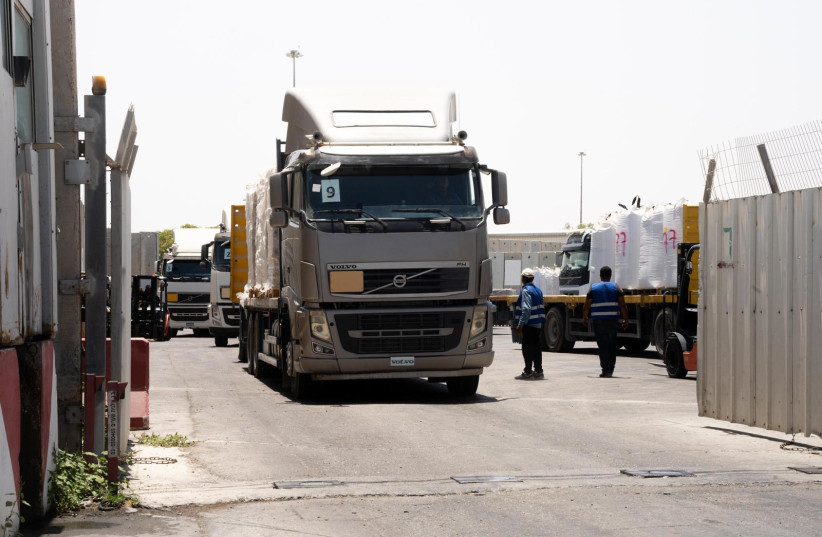A breakdown in security with UN aid trucks being shot at and looted by criminal gangs and actors have led to the backlog of humanitarian assistance at Kerem Shalom, State Department Spokesperson Matthew Miller told reporters on Tuesday.
US Special envoy for Middle East humanitarian issues Lise Grande is working with the UN and various government entities to figure out a way for UN workers to safely do their jobs, Miller said.
Aid workers should have personal protective equipment including radio and other communications equipment which would help them safely move around Gaza and ensure that the humanitarian work is continuing.
While Miller said a problem earlier in the war was getting enough trucks to the crossing the current problem is getting both commercial and humanitarian trucks through.
Miller noted that there still is assistance going into Northern Gaza and Ashdod, but the problem is in Southern Gaza.

Short-term solution vs. The long-term solution
The short term solution is working with the UN, IDF, COGAT and others inside the Israeli government, Miller said but the long term solution is a ceasefire and reestablishment of Palestinian-led governance.
All of these things would go to a restoration of law and order and needs to be resolved by the UN and IDF, he said.
"The best option is to get a ceasefire and end of hostilities," Miller added. "There is no substitute for the aid coming in through Kerem Shalom. Sometimes we are able to supplement through the pier and air drops, but the main delivery needs to be through the gates into Gaza."
Miller addressed the latest report from the Integrated Food Security Phase Classification (IPC) released Tuesday which said more than 495,000 people are facing the most severe, or "catastrophic," level of food insecurity.
A high risk of famine will persist across the Gaza Strip as long as the war between Israel and Hamas continues and humanitarian access remains restricted, despite some more aid arriving in northern areas, the global hunger monitor reportedly said on Tuesday.
"The IPC confirmed what we all know and have been dealing with for the past eight months, is that the humanitarian situation is dire," Miller said.
Miller noted while Northern Gaza saw improvement, the report indicated the region could backslide into famine at any point.
According to Miller, Defense Minister Yoav Gallant in meetings with the State Department on Monday gave assurances Israel would continue to work on these humanitarian issues.
